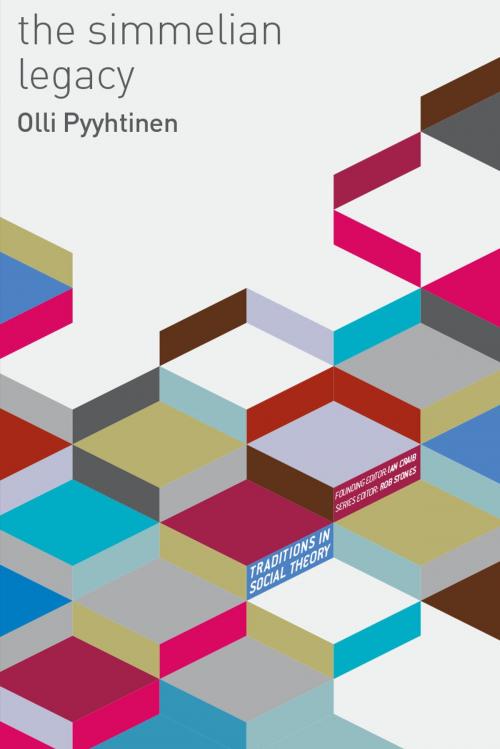| Author: | Olli Pyyhtinen | ISBN: | 9781137006646 |
| Publisher: | Macmillan Education UK | Publication: | September 20, 2017 |
| Imprint: | Red Globe Press | Language: | English |
| Author: | Olli Pyyhtinen |
| ISBN: | 9781137006646 |
| Publisher: | Macmillan Education UK |
| Publication: | September 20, 2017 |
| Imprint: | Red Globe Press |
| Language: | English |
While Georg Simmel is widely known, the impact of his work has been far from straightforward, with the ways in which his ideas have been taken up by later thinkers as complex and diverse as the ideas themselves. The Simmelian Legacy is a comprehensive study of the work of this influential sociologist and philosopher and its reception in the Anglophone, German, and French intellectual worlds.
By returning to Simmel and his legacy, this text gives voice to a corpus of vast significance and great potential that has lived too much in the shadows. It examines how his relational mode of thought transforms the landscape of sociological problems to subvert conventional conceptions of Simmel’s oeuvre as well as of sociology’s history. It not only rediscovers key dimensions of Simmel’s thought, but also explores its gradual and uneven re-emergence within subsequent scholarship.
This is an engaging and lucid, intellectually illuminating and thoroughly accessible overview of the thought of one of sociology’s key thinkers that will be essential reading for both scholars and students of sociology and social theory.
While Georg Simmel is widely known, the impact of his work has been far from straightforward, with the ways in which his ideas have been taken up by later thinkers as complex and diverse as the ideas themselves. The Simmelian Legacy is a comprehensive study of the work of this influential sociologist and philosopher and its reception in the Anglophone, German, and French intellectual worlds.
By returning to Simmel and his legacy, this text gives voice to a corpus of vast significance and great potential that has lived too much in the shadows. It examines how his relational mode of thought transforms the landscape of sociological problems to subvert conventional conceptions of Simmel’s oeuvre as well as of sociology’s history. It not only rediscovers key dimensions of Simmel’s thought, but also explores its gradual and uneven re-emergence within subsequent scholarship.
This is an engaging and lucid, intellectually illuminating and thoroughly accessible overview of the thought of one of sociology’s key thinkers that will be essential reading for both scholars and students of sociology and social theory.















